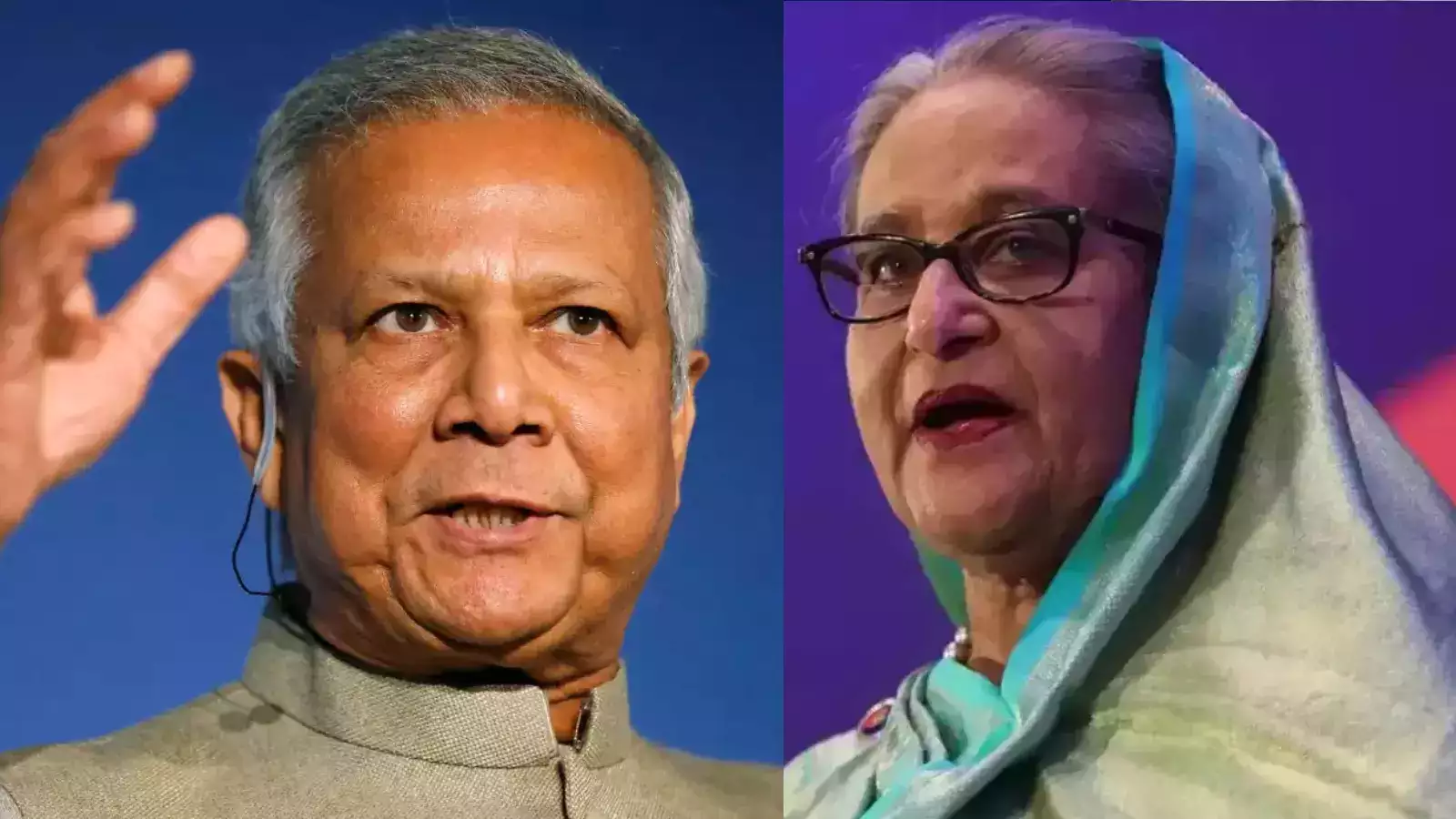The Yunus-led Government, which took office on August 8, 2024, and the Hasina-led Government, which was in power from 2009 to 2024, stand as stark reflections of one another, revealing a troubling continuity of authoritarian practices despite their contrasting ideological underpinnings.
A detailed comparison of their governance exposes a shared playbook: consolidating power, suppressing dissent, and prioritizing loyalists over the public good. While their international backers differ significantly, their domestic strategies converge in ways that undermine democracy, human rights, and constitutional integrity.
Both governments have systematically staffed advisory panels, reform commissions, and government positions with their own people, ensuring that key institutions serve as extensions of their will rather than independent entities. This nepotistic approach has fortified their control, mirroring a patronage system that prioritizes loyalty over competence. Similarly, the police under both regimes have been weaponized to suppress movements, quashing protests and opposition with an iron hand. Supporters of YG and HG alike have been unleashed to intimidate critics, creating an atmosphere of fear that stifles dissent.
Impunity is another common thread. Crimes committed by supporters of both governments have been met with leniency, if not outright protection. Both have demonstrated a blatant disregard for accountability, from releasing affiliated criminals on bail to awarding lucrative contracts to cronies.
This cronyism extends to their manipulation of legacy media, which both have used as a tool for self-promotion while suppressing negative coverage—a tactic that keeps their public image polished despite mounting failures.
Constitutional violations and legal overreach are hallmarks of both administrations. They have bent laws to serve their own interests, eroding the rule of law in pursuit of power.
When faced with criticism or setbacks, both have resorted to blaming rivals, deflecting responsibility rather than addressing systemic issues. This culture of denial permeates their governance, as neither has shown a willingness to confront their shortcomings or engage in genuine reform.
On matters of principle, both governments falter. Human rights have been sidelined, with neither upholding the basic tenets of justice and equality.
Democracy, too, appears to be an inconvenience rather than a goal, as evidenced by their authoritarian tendencies. Minority protection—a cornerstone of any equitable society—has been neglected under both, leaving vulnerable communities exposed to discrimination and violence.
The most notable distinction lies in their external support. The Yunus Government is propped up by Islamists and jihadists, war criminals linked to Jamaat-e-Islami, the West, and the United Nations, reflecting a coalition that blends religious and geopolitical interests.
The Hasina Government, in contrast, drew strength from secularists, India, and Russia, aligning with a different set of regional and ideological powers. This divergence suggests that while their methods align, their legitimacy is derived from opposing global camps.
The two governments, though separated by their backers, are united by a near-identical approach to governance—one rooted in repression, self-interest, and the erosion of democratic ideals. For citizens, this parallelism offers little hope, as the faces may change, but the machinery of control remains eerily consistent.
Comparison in brief
-Yunus-led Government recruits own people in advisory panel, reform commissions, govt jobs. Hasina-led Government did the same.
-YG uses police to suppress movements. HG did the same.
-YG uses supporters to intimidate critics. HG did the same.
-YG awards impunity for crimes by supporters. HG did the same.
-YG awards contracts to own people. HG did the same.
-YG uses legacy media for promotional campaigns and suppresses negative news. HG did the same.
-YG releases criminals linked to supporters on bail, cancels verdicts using court. HG did the same.
-YG violates Constitution, laws for own gains. HG did the same.
-YG blames rivals for failures. HG did the same.
-YG adopts culture of denial. HG did the same.
-YG doesn’t uphold human rights principles. HG did the same.
-YG doesn’t want democracy. HG did the same.
-YG doesn’t prioritize protection of minorities. HG did the same.
-YG is backed by Islamists, Pakistan, West, UN. HG was backed by secularists, India, Russia.


মন্তব্য করুন
মন্তব্য করার জন্য আপনাকে অবশ্যই লগইন করতে হবে।